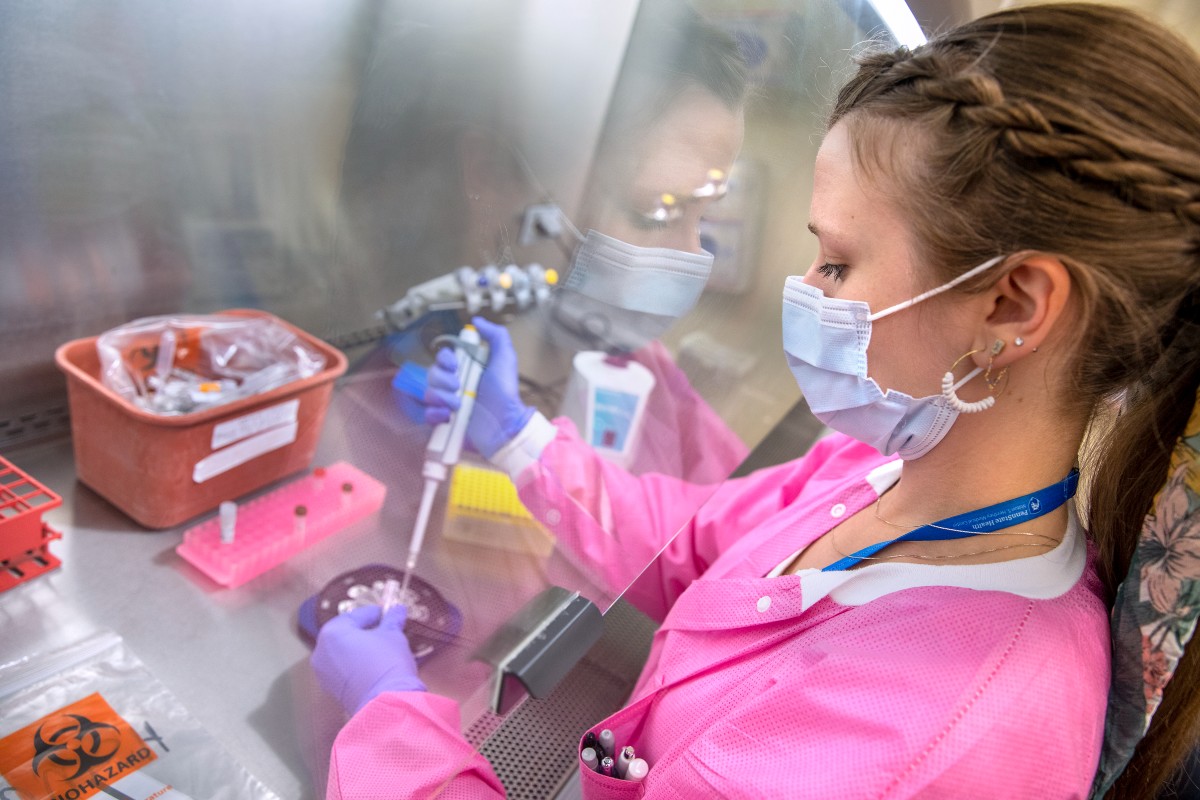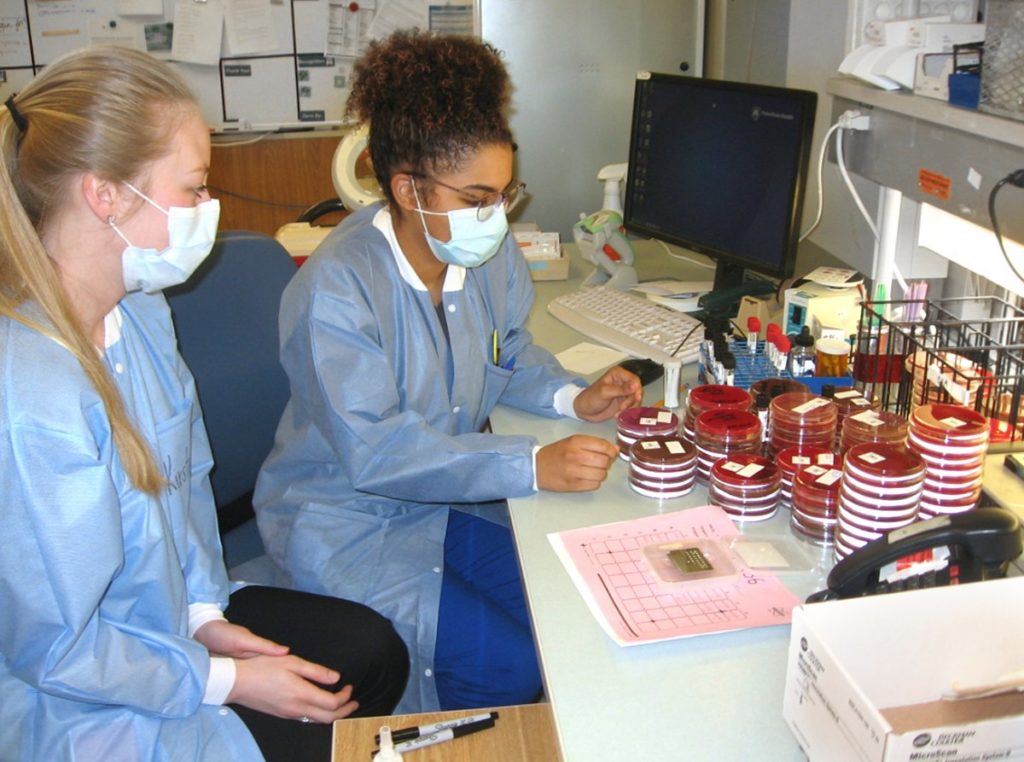Medical Laboratory Science Program receives accreditation

When Mya Falcioni first walked into a laboratory, she was instantly fascinated by all the work done there.
“It’s like a big puzzle that you have to figure out,” she said. “Opening the door to the lab always brings something exciting.
Falcioni works as a certified medical laboratory scientist at Penn State Health Milton S. Hershey Medical Center and is a 2020 graduate of its Medical Laboratory Science Program. The program has received an initial five-year accreditation from the National Accreditation Agency for Clinical Laboratory Sciences.
The accreditation means the program meets the best practices and standards of medical laboratory science (MLS) and follows respected guidelines and required curriculum. The expectation is that the program will maintain standards so that it will gain continued accreditation in 2026.
Penn State Health is celebrating the accomplishment because it serves as a stamp of approval and recognizes curricular and training excellence that provides competent laboratorians to help meet the needs of our institutional and statewide workforce shortage. The program is only two years old with its third class of students beginning this month. Falcioni said the 11-month training program prepared her to work in a large hospital where laboratories examine a wide range of specimens.
Admission into the program is competitive and based upon academic performance, letters of reference and an interview. Only eight students are accepted each year. They have either completed a college degree or finished three years of undergraduate studies before enrolling in the MLS program for their final year. The program runs from June through April. Students must have taken prerequisites in chemistry, biology and math and earned a GPA of 2.75 or greater.

Mya Falcioni, an alumna of the Medical Laboratory Science Program, shows program alumna Kirsten Hedderick how to perform an identification test in the microbiology lab.
Mary Beth Miele, MLS program director, said the goal from the start has been to create a high-quality program that challenges students and prepares them to work in a variety of settings, including hospital laboratories, physician office laboratories, reference laboratories, diagnostic device manufacturing and pharmaceutical industries. Graduates also are eligible to take a national certification examination that attests to their competency and preparedness as a medical laboratory scientist. This type of certification is required to work in Penn State Health’s clinical pathology laboratories.
“The laboratory workforce is getting older, and we need younger people who have a strong background in medical laboratory science to take their place,” said Miele. “This is an important job. Lab work doesn’t take a break. It’s needed 24 hours a day, every day of the year.”
Most of the program graduates so far have taken jobs at Milton S. Hershey Medical Center. Falcioni works in the microbiology lab with about 20 other laboratory professionals. She says she enjoys her job and , when she decided to pursue a career in health care, wanted to do something hands-on.
Because of the many fields of medicine within the hospital system, MLS graduates can dive into a variety of lab work, from routine blood tests to infectious disease testing for COVID-19 and compatibility testing for blood transfusions, stem cell and organ transplants.
During the program, students spend the first six months in the classroom and student laboratory where they learn basic skills essential for the practice of medical laboratory science. In the last five months, they do clinical rotations throughout Hershey Medical Center’s many Clinical Pathology laboratories where they are paired with experienced laboratorians who teach them the daily operations and prepare them to practice medical laboratory science.
Laboratory test results inform an estimated 70% of patient care decisions, and medical laboratory scientists provide the front-line diagnostics that guide doctors and nurses on how to care for patients, said Dr. Melissa George, a professor in the Department of Pathology and Clinical Medicine, who was instrumental in supporting the MLS program.
“The pandemic has brought our unsung heroes out from behind the scenes to the forefront,” she said. “The medical laboratory science program is critical to the pipeline of future laboratory professionals who will provide patient care in the years to come.”
Learn more about the Medical Laboratory Science Program
If you're having trouble accessing this content, or would like it in another format, please email Penn State Health Marketing & Communications.
